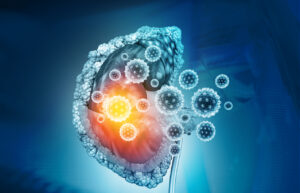What to Know about Acute Kidney Injury and Chronic Kidney Disease

Our kidneys are some of our most essential organs, and they’re responsible for cleaning our blood and getting rid of toxins and excess fluids in our body by converting them to urine. The two kidneys filter around 59 gallons of fluids every day, keeping us as healthy as possible. However, as we age, they begin to develop conditions that hamper their ability to filter our blood.
Acute kidney injuries and chronic kidney disease are common conditions affecting kidney function. These illnesses are distinct and have different prognoses, and the former has a higher chance of being a reversible ailment. However, both of them can still lead to renal failure if left untreated.
Having reduced renal functions isn’t easy, and it’s best to contact a healthcare professional and get onsite laboratory services if you or a loved one is experiencing this condition.
It’s also helpful to understand the difference between acute kidney injury and chronic kidney disease to know what treatments to expect in the future. Without further ado, let’s discuss these two conditions in further detail.
Acute Kidney Injury: An Overview
Acute kidney injury (AKI) is an abrupt or rapid decline in renal filtration functions. It’s usually triggered by a traumatic injury to the kidneys. It occurs over a short period of time, typically two days or less. However, it’s a serious condition that needs to be treated right away.
AKI can cause a buildup of waste and toxins in the blood, and it can also hamper the kidney’s ability to balance fluids in the body. As a result, it can affect other organs like the heart, lungs, and brain. Older adults are more susceptible to developing this condition, as are intensive care patients.
Acute kidney injury can have many different causes. It may occur because of:
- A blockage in the ureters, which are ducts that carry urine from the kidneys to the bladder
- Impaired blood flow to the kidneys (due to severe bleeding, low blood pressure, heart attacks, allergies, overuse of medicines, etc.)
- A direct injury to the kidneys
The symptoms of AKI may not show right away, but here are some typical indications to look out for:
- Impeded production of urine
- Swollen legs, ankles, feet, or areas around the eyes
- Shortness of breath
- Chest pain
- Nausea
- Confusion
- Fatigue
In severe cases, seizures and coma may also occur due to AKI. It’s best to get the kidneys tested regularly to reverse the condition.
Chronic Kidney Disease: An Overview
Unlike AKI, which occurs suddenly, chronic kidney disease (CKD) takes some time to develop. It’s a more insidious condition that results from years of damage to the kidneys. Much like acute kidney injuries, CKD can lead to renal failure and dangerous buildups of toxins, fluids, and electrolytes in the body.
CKD comes in five stages, and most patients do not experience significant symptoms until they’ve entered stage three. The illness can cause multiple complications like anemia, high blood pressure, and nerve damage. However, early monitoring and treatment can do wonders for a patient’s outcomes.
The symptoms of CKD may include:
- Swollen legs, ankles, feet, or areas around the eyes
- Frequent or impeded urination
- Nausea and vomiting
- Muscle cramps
- Dry skin
- Shortness of breath
- Chest pain
- Fatigue
- Trouble concentrating
- Sleep problems
- Poor appetite
Patients who have CKD will require dialysis or kidney transplants to survive.
Get the Best Kidney Care in Morristown
Renal problems are challenging to deal with, especially because they can affect all of our body’s organs. It’s vital to monitor patients regularly and ensure they get their treatment as early as possible to avoid complications, especially in older adults.
If you’re looking for onsite laboratory services in Morristown, NJ, Morristown HC has you covered. We ensure that our patients get the utmost quality of short-term and long-term care they deserve. Contact us today to learn more!